Marketing feeds lit up overnight as AI-driven search squared off against old-school SEO. Lily Ray’s 4,000-word rebuttal to the “SEO is dead” chorus - The Rise of AI search Does Not Mean ‘SEO is Dead’ - hit timelines just as a recent study by Dr. Kevin Matthe Caramancion suggested users increasingly lean on large language models for conversational tasks. Hot takes, memes and tool pitches quickly flooded X, Reddit and Discord. Below is the rapid-fire summary busy marketers asked for.
AI search: Quick pulse
“GEO = Old SEO in a New Hoodie”
- Lily Ray’s post sparks 3k+ reposts in 12 hours; “SEO Funeral” meme flips to “Resurrection” - mood: sarcastic optimism.
- X threads show SERP vs. AI Overview click splits; marketers share 0.3-0.8 % AI traffic screenshots - mood: shrug.
- Tool vendors demo “AEO dashboards”; early adopters doubt data accuracy - mood: wary hype.
- Screenshot of ChatGPT citing ?srsltid Google URLs fuels theory it now scrapes Google, not Bing - mood: intrigued.
- Ongoing gripe that “GEO gurus” are repackaging classic tactics - mood: calling BS.
Generative Engine Optimisation vs. SEO
The loudest thread asks whether “GEO/AEO” adds anything beyond keyword research, content hubs and link earning. Memes compare today’s GEO slide decks to 2015 voice-search playbooks built on Speakable markup. Skeptics demand case studies that prove new traffic from AI surfaces rather than cannibalised Google clicks.
Signal: @lilyraynyc’s post clears 420k impressions while the r/SEO thread “GEO = SEO?” tops 1.4k upvotes in six hours.
“Stop selling old wine in a Midjourney label.”
Why it matters: Clients are already asking for GEO retainers. Social chatter suggests folding those asks into existing SEO scopes instead of inventing a pricey new line item, especially because Google’s new guidance for appearing in AI search largely mirrors long-standing best practices.
Google AI Overview misfires
Screenshots of AI Overviews hallucinating outdated specs and mis-quoting prices keep circulating. SEOs note most errors pull from thin-content affiliates or scraped PDFs. Debate rages over whether cleaning your own crawl footprint can shield brands from bad citations.
Signal: @itsdannyt’s thread is at 2.1M impressions; the “Garbage In, Garbage Out” meme is trending on TikTok (#gaoview, 11.6k videos).
“If your PDP boilerplate is a mess, GAO just turned that mess into the answer box.”
Why it matters: Error screenshots travel faster than ads. Fix source content before your brand becomes the next viral hallucination.
AI traffic benchmarks stay tiny
Marketers share GA4 panels showing sub-1 % of sessions coming from AI chat links even in tech niches. Rand Fishkin of SparkToro reposted Datos numbers to underline Google’s 14 B daily searches versus ChatGPT’s reported 1 billion daily messages. Meanwhile, recent analysis by Glenn Gabe warns that chasing AI clicks at the expense of core updates is risky.
“Chasing AI pennies while ignoring Google dollars is how you get hit twice.”
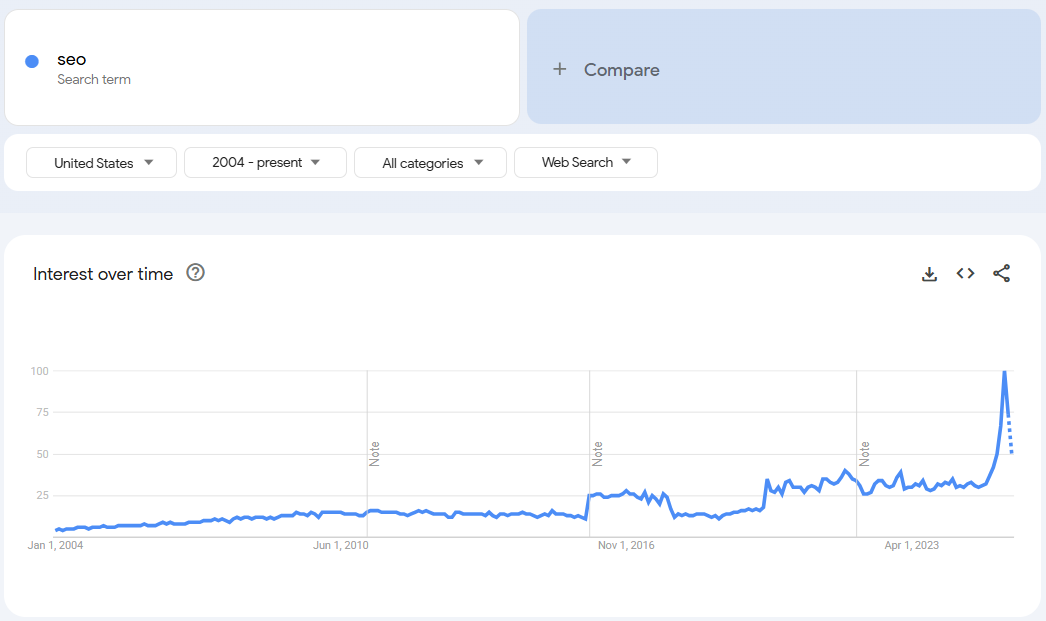
Takeaway: Use AI surfaces for reputation monitoring, not primary traffic goals - at least for now.
Tool rush and citation tracking
Demos of Profound, Peec AI and ZipTie dominate LinkedIn. Early testers applaud cross-LLM mention counts but complain about noisy false positives. SEO Slack groups share scripts that pull citation lists straight from ChatGPT “Sources” sections while we wait for a clear leader. Some of these tools rely on query fan-out scraping - a process SEOs already understand, as explained in great detail in this article.
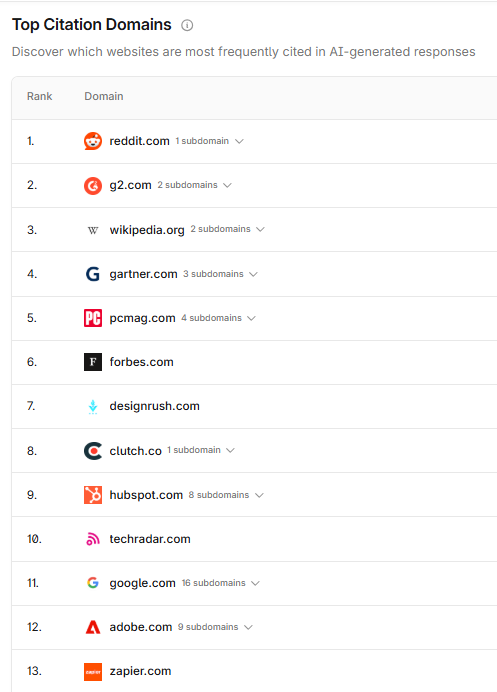
“Feels like 2009 backlink tools all over again - 30 dashboards, zero standards.”
Advice: Let the dust settle before committing budget. If you must experiment, validate results against server-side logs.
Local and entity signals resurface
Screens of Google AI Mode pulling Google Business Profile snippets have SEOs racing back to NAP audits. Telegram channels share tips on embedding GPS data in JSON-LD to improve citations, echoing the long-running FAQs and Q&A sections schema playbook. Lily Ray’s deeper take on Google’s AI Mode underscores that bad local data shows up fast in AI answers.
“AI Mode basically reads your GBP; treat it like your new homepage.”
Bottom line: Clean local profiles still move the needle - now they may also control the snippet an LLM shows on mobile.
Fact check and caveats
Rumors that OpenAI completely swapped from Bing to Google are unconfirmed. Evidence is limited to URL parameters in a small sample of answers, though a recent article is digging deeper. ChatGPT’s blend of search-engine results was previously confirmed in its documentation.
Many engagement numbers above are screenshot-based and platform analytics may adjust later. Tool claims of “90 % citation coverage” remain unaudited.
Finally, beware short-term AI visibility tricks. Examples of many of the newer spammy techniques resemble the classic hidden-text tactic of adding prompt information using white text on a white background. We have seen the same hype cycles before - TikTok search “caused panic at Google” in 2022, yet SEO demand keeps climbing, as Search demand for “SEO” since 2004 in the U.S. shows.
In short: AI search is evolving fast, but the fundamentals of discoverable, structured, trustworthy content still pay the bills.



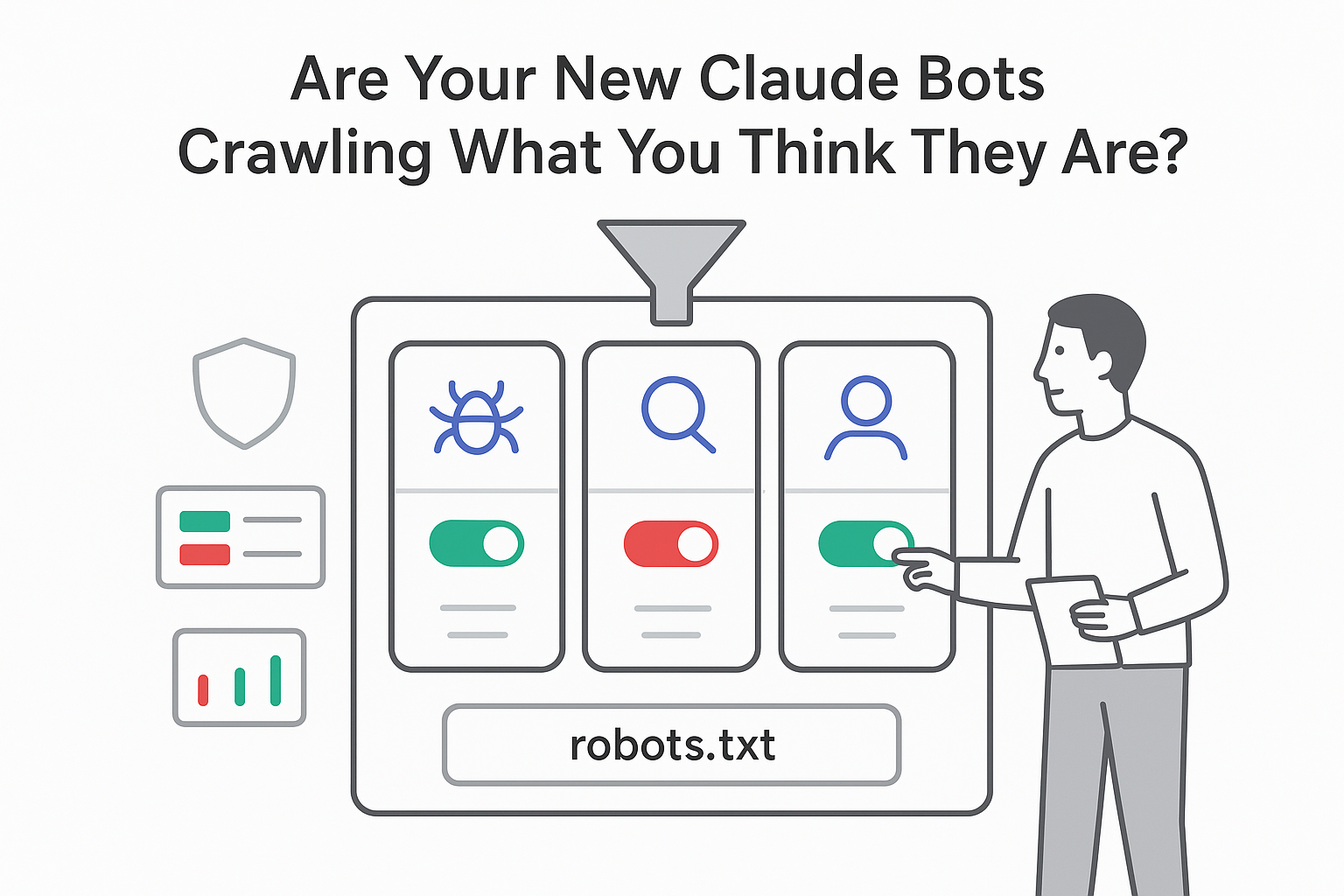
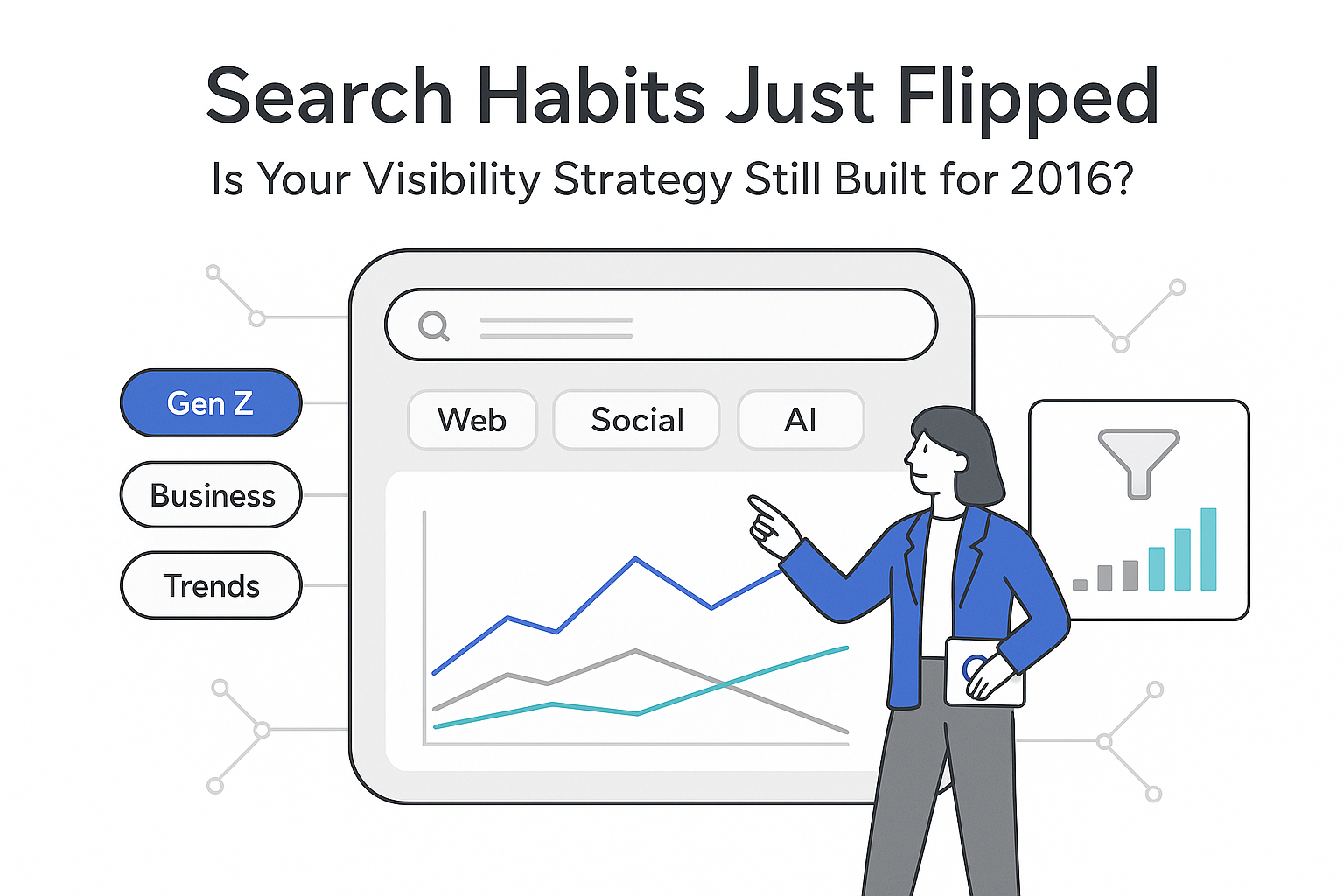
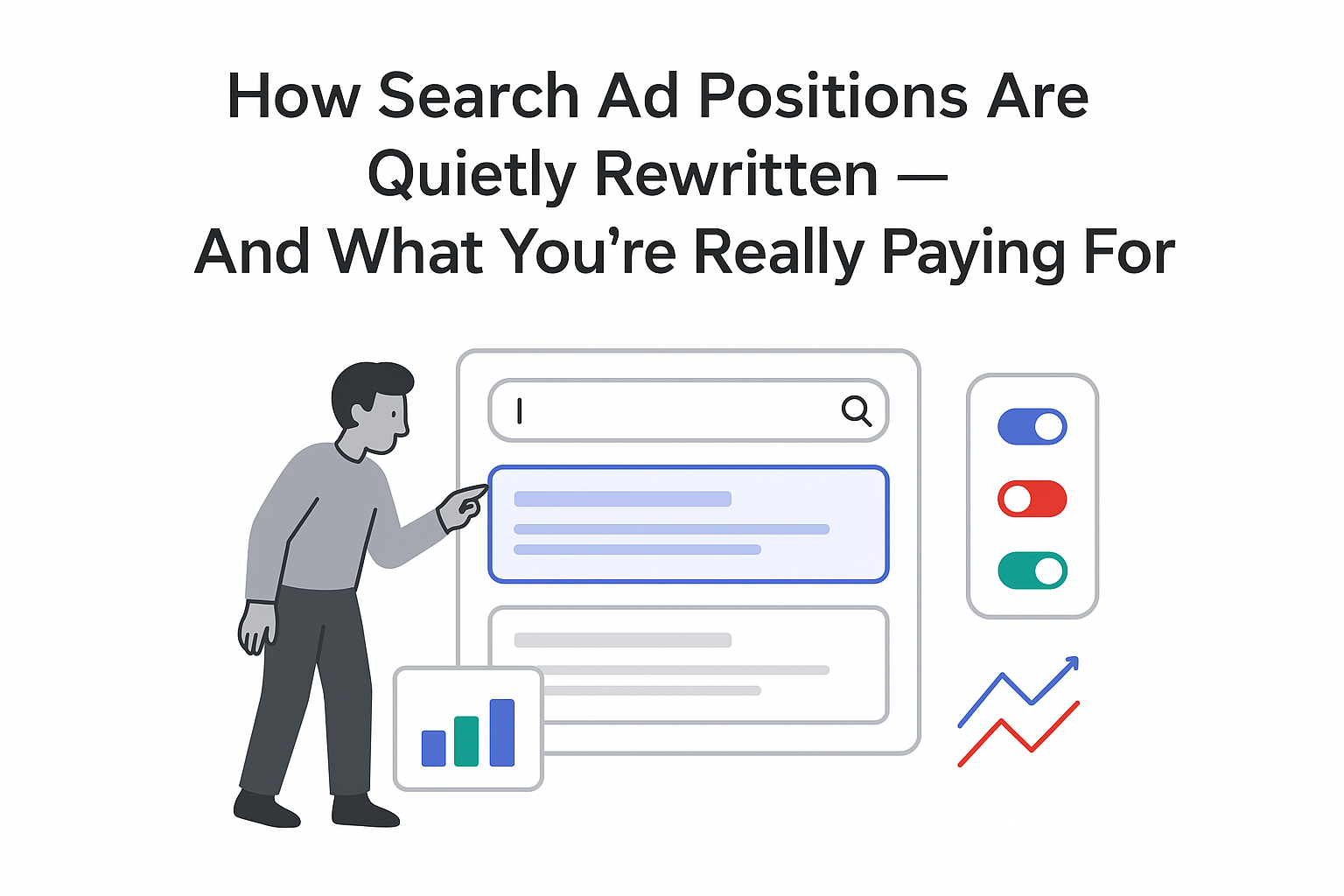
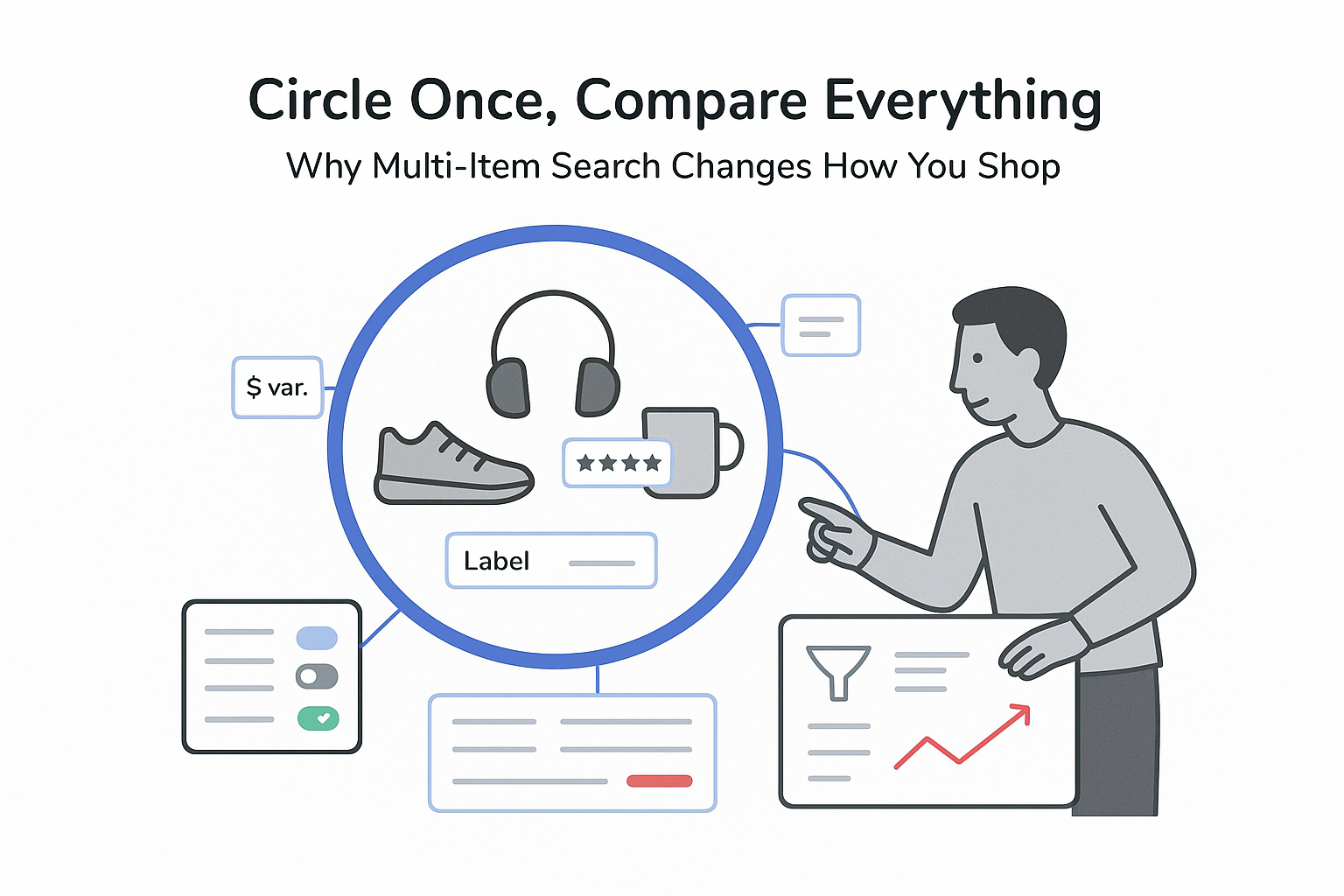
.svg)